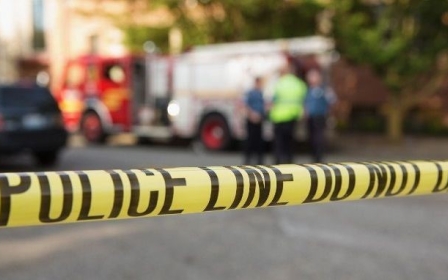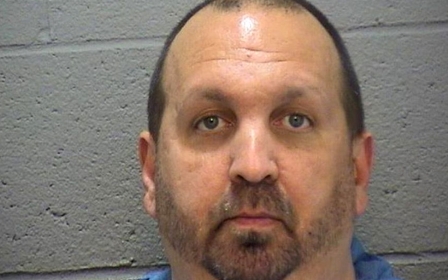Interfaith support aids Houston's burned Islamic centre

HOUSTON, Texas - An Islamic centre in Houston has received thousands of dollars in donations from Christians, Jews and atheists after a fire burned down the centre’s upcoming recreation building.
“For the first 12 hours [after the fire], most of the donations we received came from Christians. The support we received – the ceaseless phone calls and positive Facebook messages – it was amazing. We were floored by the response,” said Ahsan Zahid, the son of the centre’s imam.
Houston’s police department made an arrest in connection with the fire at the Quba Islamic Centre. The suspect, Darryl Ferguson, a homeless man, said he did not intend to cause the blaze and meant to stay warm, but an earlier report from the Houston Chronicle suggests he made an anti-Islamic slur to a convenience store clerk prior to the fire.
The fire, officially being investigated as arson, comes on the heels of a triple homicide of Muslim students at the University of North Carolina in Chapel Hill. But Zahid expressed doubt on whether the fire has any connection at all to the shootings.
“Obviously, you don’t think ‘maybe something bad is about to happen here’. Or even put together what happened at Chapel Hill might happen here as well,” he told Middle East Eye.
A flood of donations
Despite the motives behind the alleged arson, the centre has received roughly $25,000 in support. The donations came through their website and from a group of people who started a crowd-funding site in their name.
“The very first person who donated to try to help us rebuild was a Christian man. We were finishing our Friday prayers, still reeling from the accident. A Christian man named Mr. Motley came up and said, ‘Oh, I’m so sorry about what happened to your centre, I want to donate.’ He wrote a check for $50. To be honest, we weren’t expecting an outpouring of support from all communities. We’re surprised at how many atheists are on our page,” Zahid said.
“When people started donating – even if it was 5 dollars or 10 dollars or even $100 - that means a lot to us. They don’t have to do that, they don’t have to reach out and try to help us rebuild,” he added.
Originally reported as a storage facility that burned down, the centre was planning to use the building as space for its recreational activities.
“The building was completely framed, it was insulated, and we were going to put a pool table, ping pong table, a cafeteria…stuff like that in there,” Zahid said.
The centre believes the entire cost of the damage is between $200,000-$250,000.
Fighting the Facebook trolls
After the blaze, the centre became well known for its Facebook posts. Several people commenting on the website expressed anti-Muslim sympathies and even issued threats. The centre responded to these negative comments with “kindness”.
“[Zahid] responded to criticisms on their Facebook page with kindness”, said Ruth Nasrullah, the communications director for the Council of American-Islamic Relations in Texas (CAIR-TX).
“The response from Quba has been amazing. [Zahid] has been even-handed about it. He’s basically taking the approach that ‘we won’t blame anyone until we know what’s happening,’” Nasrullah told MEE.
“I think our response on Facebook has been effective. Our response goes back to basic Islamic teaching. When someone says something bad to you, it is not necessary to make an angry response. We believe that if you’re kind to someone when they’re being angry or hateful towards you…so long as you do not reply to that person with malcontent, you will lose nothing. So, in that way, we kinda turned the other cheek and let it go,” Zahid told MEE.
Islamophobia in Texas
Anti-Muslim sentiment in Texas is not a new phenomenon. Last month, CAIR-TX held a rally in Austin that was interrupted by anti-Muslim protesters.
“The people protesting [the rally] represent a fringe of anti-Muslim voices, but they may be growing, which is a concern,” said Nasrullah.
On 17 February, police arrested a man for making bomb threats at an Islamic centre in Austin.
Last month, thousands protested a conference conducted by an Islamic group in Garland, a suburb of Dallas. According to an NBC report, one of the protesters said "We're here to stand up for the American way of life from a faction of people who are trying to destroy us."
Despite all the anti-Muslim rhetoric and vitriolic messages, however, Zahid remains optimistic. “Hatred is irrational. We’re not born to hate; we’re trained that way. It’s a learned behaviour. I think when you approach with kindness someone who’s tried to make you upset, it might just have a little bit of an effect on their heart, even if they don’t acknowledge it. Just being nice is the proper way to be, even in the face of anger or hatred.”
Stay informed with MEE's newsletters
Sign up to get the latest alerts, insights and analysis, starting with Turkey Unpacked
Middle East Eye delivers independent and unrivalled coverage and analysis of the Middle East, North Africa and beyond. To learn more about republishing this content and the associated fees, please fill out this form. More about MEE can be found here.





